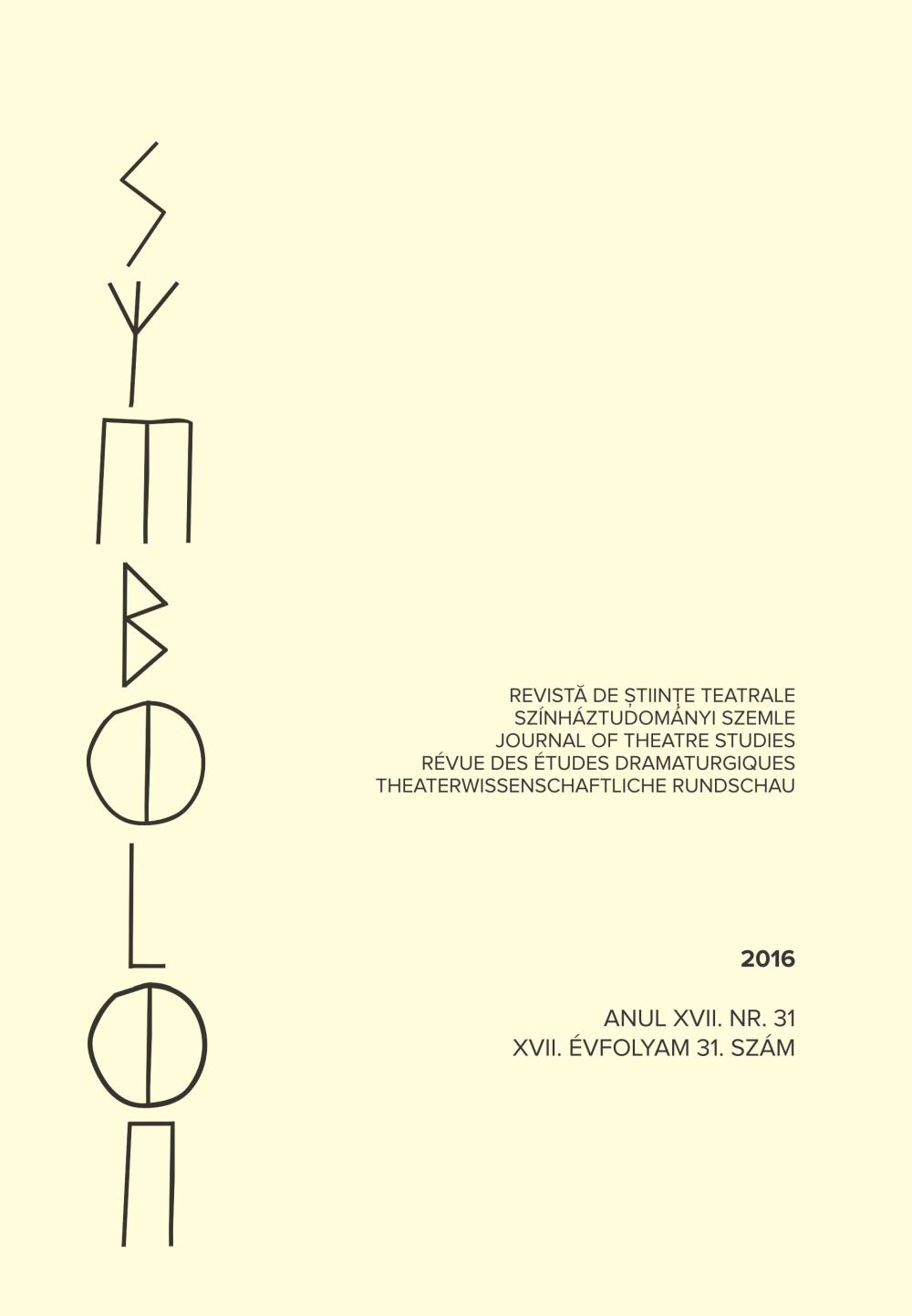Nemzedéki önértelmezések a 80-as évek magyar színházában
Generational Self-Definition in the Hungarian Theatre in 1980s
Theatrical Functional Trial in Several Performances in Kornis Mihály’s “Kozma” Drama
Author(s): Erika N. MandlSubject(s): Theatre, Dance, Performing Arts, Fine Arts / Performing Arts
Published by: UArtPress - Editura Universității de Arte din Tîrgu Mureş - A Marosvásárhelyi Művészeti Egyetem Kiadója
Keywords: Mihály Kornis; János Ács; István Horvai; Csiky Gergely Theatre – Kaposvár; Pesti Színház;
Summary/Abstract: The lecture is about Kornis Mihály’s less known drama with the title “Kozma” directed by Ács János (1986, Kaposvár) and Horvai István (1988, Pesti Színház). For the reconstruction of the play I used creator’s declarations, photos, criticism, play recordings. Kornis’s third drama takes place in the 1980’s at Lake Balaton on the beach of a closed holiday resort, where three old women enjoy themselves in the heat, when on the effect of a mysterious person named Kozma “coming from above” they begin to confess their secrets. The women’s relatives were men working for the government. Their confessions and their life are closely related to the previous three decades’s historical events. A scene becomes a common place for the one -dimensional peaceful phenomena and its victims tensioned world. The ones suffering innocently die “in one minute” round the three women who seem to belong to the privileged stratum. The play ends with a wild dancing, which can be interpreted as a reconciliation or a penalty dance. The drama “Kozma” had a summarizing function in the contemporary dramaturgy. In a reference or partly contains every characteristic and the important historical events of the age presented in the play (1956, 1968 Prague). It can be regarded as a national self-definition, the common experience of the Hungarian playwrights. It should be mentioned the effect of Pilinszky’s “Síremlék” (“Tombstone”) -dramaturgy, which in Hungarian literature created in a unique way the silence of the postwar anxiety (“Gyerekek és katonák”, “Kids and Soldiers”, Pécs, 1981). The premiere in Kaposvár bonus that Ács and Kornis belonged to the same generation and they aimed a valid theatrical presentation without any political tendency. Ács and Horvai directed in a stylized, sensitive way the different layers of the play that is not without mistakes. On of the main strength of Kozma is the uncertainty in action, their interpretation and the dialogues. Kornis leaves the reason of actions in shadow: the events are questioned. Characters of Kozma do not realize their fate, their mistakes and the fact that they are victims; they hold their burdens alone. This solitude is expressed on the stage with spectacular pantomime and silences. The author emphasizes the tragic situation with the emphasized lack of it. Kornis thought that the beach resembling a lager is “a metaphor with big endurance” that can authenticate every happening. The old women’s naked sunbathing is a metaphor as well, the metaphor of coziness, the “consciousness of possessing”. The human load of the truck is another metaphor. One of the main questions of the play was the problem of nudity on stage which was a problem of the age. (Characters of the women was characterized by the color and pattern of their swimming suits.) The stage-designer decided to solve the problem by signaling. The reality of the abstract space was given by things used on the shores. The background or the foreground was activated with the means of proper changes and movements – during the activity of one of these the other side’s characters were present as lifeless nature. It is an important contribution to the evaluation of the performance that the social atmosphere around the premiere in 1986 in Kaposvár and the one in Budapest in 1988 changed as well, the play rewritten to the second premiere became a play with much clearer structure and the premiere in Budapest could show better the symbolic-metaphoric layers of the drama.
Journal: SYMBOLON
- Issue Year: XVII/2016
- Issue No: 31
- Page Range: 95-103
- Page Count: 9
- Language: Hungarian

